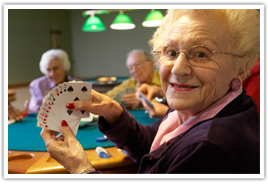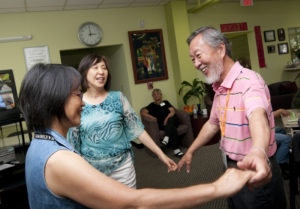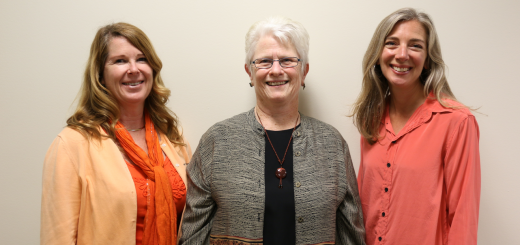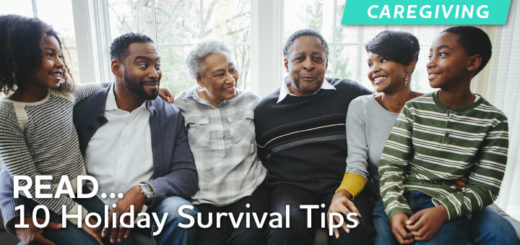Adult Day Centers and How to Encourage Attendance
 Adult day centers offer people with Alzheimer’s and other dementias the opportunity to be social and to participate in activities in a safe environment. If you are a full-time caregiver, adult day centers can provide a much needed break. While the person with Alzheimer’s is at the center, you’ll have time to rest, run errands or finish other tasks. If you find yourself feeling guilty, ask yourself this, “If I wear myself out to the point of total exhaustion, what good will I be to the person with dementia?”
Adult day centers offer people with Alzheimer’s and other dementias the opportunity to be social and to participate in activities in a safe environment. If you are a full-time caregiver, adult day centers can provide a much needed break. While the person with Alzheimer’s is at the center, you’ll have time to rest, run errands or finish other tasks. If you find yourself feeling guilty, ask yourself this, “If I wear myself out to the point of total exhaustion, what good will I be to the person with dementia?”
If you are a caregiver that works during the day, an adult day center can be very helpful as you try to balance a job with caregiving duties. Hours of service vary at each center, but some are open from seven to 10 hours per day. Some also may offer weekend and evening hours, and transportation and meals are often provided.
Many centers offer services on sliding scales, where caregivers pay according to ability or income. In some states, Medicaid covers cost for people with very low income and few assets. Be sure to ask about basic fees, financial assistance and additional charges for such services as crafts or field trips.
Day Centers in California
Day care centers differ from larger Senior Centers that offer independent seniors a variety of activities, classes, and links to resources, but rarely offer direct care.
Day care is provided in two types of centers licensed by the State of California:
1. Day Health Centers are under the Department of Health Services, and provide social work services, day nursing and a variety of therapies as well as activity programs. These centers accept Medi-Cal patients as well as private pay clients.
2. Social or Support Centers are under the Department of Social Services. They provide activity staff, and sometimes health professionals as well. These cannot accept Medi-Cal payment, but may have a sliding fee scale.
 A few centers take only clients with a dementia diagnosis; but most have participants with other conditions, also. Some accept clients with developmental disabilities. Other programs may cater to specific language or cultural groups, such as Russian, Chinese, Hispanic or Japanese. A few serve veterans only.
A few centers take only clients with a dementia diagnosis; but most have participants with other conditions, also. Some accept clients with developmental disabilities. Other programs may cater to specific language or cultural groups, such as Russian, Chinese, Hispanic or Japanese. A few serve veterans only.
How to get a reluctant person to attend
Keep in mind that the person with dementia will need time to adjust to the experience of going to the center. Some people may resist going at first, but they often look forward to the visit after several weeks of attending, meeting people and joining in activities. Here are some tips to encourage attendance:
Look for the appropriate center. That is, a center where your loved one may feel at home and get the needed level of care. Find some local centers here.
Convince yourself first. Call for a tour of the center to see what might interest your family member and to discuss any obstacles you anticipate. Staff members are expert at managing newcomer anxiety.
Give a convincing reason. Some people attend because they see the center as their “club” or as “class”. Some go for a particular activity, or to be with a new friend. Some attend to help others, as a volunteer would. Ask the doctor and others to help motivate your family member to try it out.
Look for a hook. Schedule your family member’s visit when there is an activity (e.g., music, crafts, exercise, or discussion) that they might enjoy and try out on the spot.
Take one step at a time. The objective of the first, short visit is simply to have the person agree to return for a day. Don’t push too hard; use a Let’s try-it-and-see approach.
Be firm. Initially, the person may enjoy the program, but complain to you of being unhappy. This is normal. Don’t argue. Try saying, They are expecting you today, or I want you to go for a little while, or Let’s talk about that later.
Get the right person to take him or her, at least the first few times. Choose someone who can usually get your family member to do things.
Start with a few, short days. Two visits a week is a minimum for someone with memory loss. When the routine becomes comfortable, you can add days. Short days are less taxing for newcomers.
Reinforce the positive. Support any positive experiences that your family member has or that you or staff noticed, whether it is a particular activity, a new friend, or the food!
Give it time. It usually takes a new person some weeks to adjust. It is important that you and the family stay on message, coaxing the person to keep going, even though you feel guilty about doing so.
Try again later. Sometimes a person frets so much that it becomes counterproductive. Taking a break and trying again after a few months’ time often works.
Helpful information related to this post:


















My wife has short term memory for the past four years ,and I have noticed ,very slowly getting a little shorter.she has been a very active snow skiing water swiming has traveled a lot,has been a frist grade teacher for thrtiy years,and even taught on military bases in Germany.we married four years ago and just recently she has been complying of being tired ,and weak she has not been a big eater but that has also slowed down. Are all this symptoms because of alhimers,please send me more information. Thankyou vince
Hello Vincent, thank you very much for your comment. We have a 24-hour Helpline you can call at 1.800.272.3900 and many resources online.